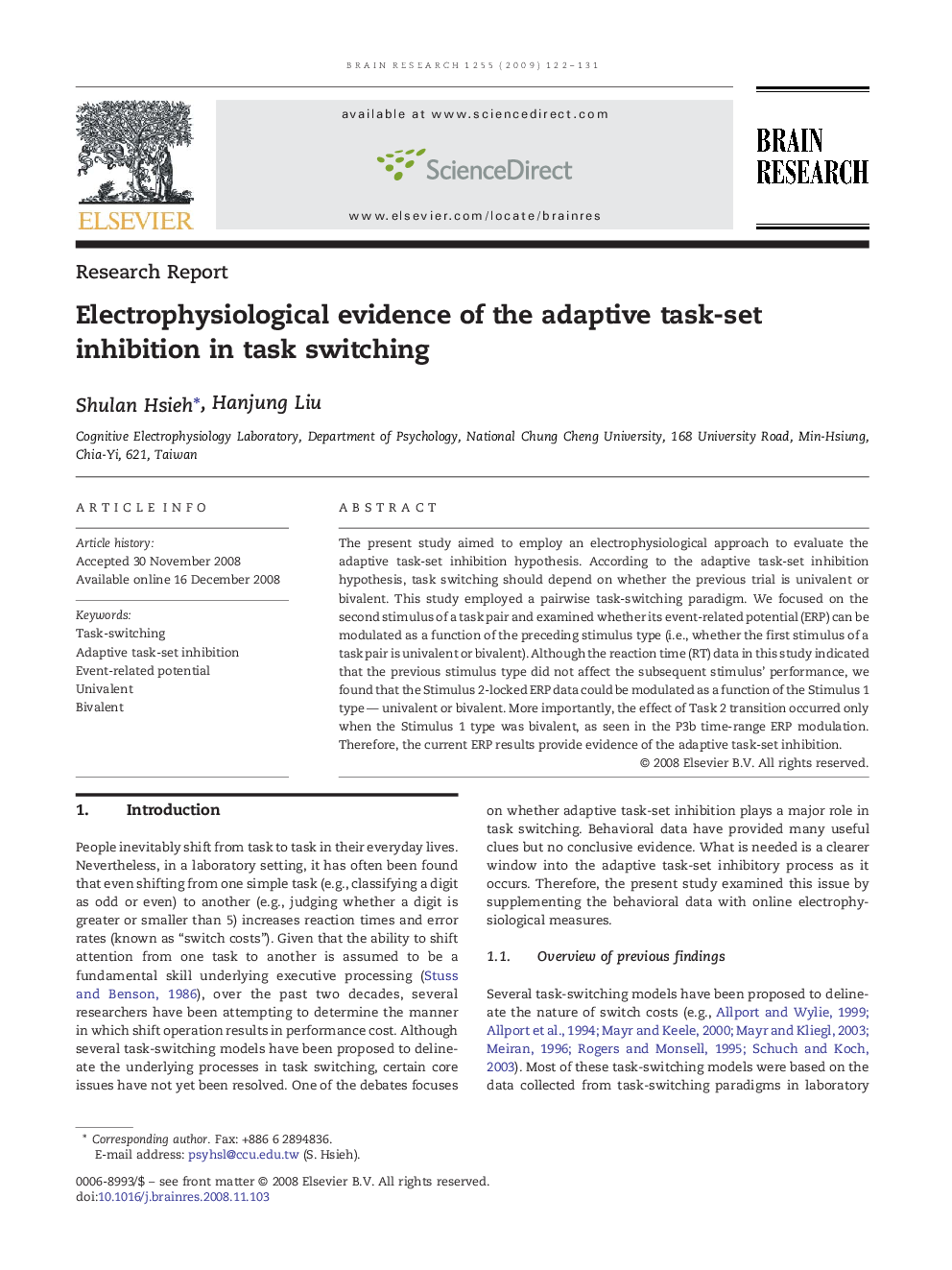| Article ID | Journal | Published Year | Pages | File Type |
|---|---|---|---|---|
| 4328659 | Brain Research | 2009 | 10 Pages |
The present study aimed to employ an electrophysiological approach to evaluate the adaptive task-set inhibition hypothesis. According to the adaptive task-set inhibition hypothesis, task switching should depend on whether the previous trial is univalent or bivalent. This study employed a pairwise task-switching paradigm. We focused on the second stimulus of a task pair and examined whether its event-related potential (ERP) can be modulated as a function of the preceding stimulus type (i.e., whether the first stimulus of a task pair is univalent or bivalent). Although the reaction time (RT) data in this study indicated that the previous stimulus type did not affect the subsequent stimulus' performance, we found that the Stimulus 2-locked ERP data could be modulated as a function of the Stimulus 1 type — univalent or bivalent. More importantly, the effect of Task 2 transition occurred only when the Stimulus 1 type was bivalent, as seen in the P3b time-range ERP modulation. Therefore, the current ERP results provide evidence of the adaptive task-set inhibition.
